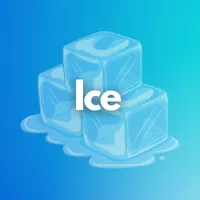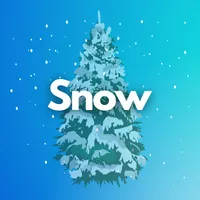Key Difference: In this article, we will show you the difference between ice and snow. These are two different forms of water. Water is an odorless and nearly colorless chemical substance. Without water, we can not live. Snow is atmospheric water vapor that is frozen into ice crystals. In this guide, we will show you the contradictions of these terms with proper explanations and examples.
Ice: I need more ice cubes.
Snow: That house is covered with snow.
 |  |
Ice:

The solid form of water.
Generally, every people like ice cubes and ice creams. It is a solid form of water. Let’s see an example to make it clear for you. She slipped on the ice. From this statement, we might understand that someone is slipped on the ice. Here we come up with another example for your reference. When water freezes it becomes ice. From this statement, we might understand that if the water freezes, it transformed into ice.
How Do We Spell the Word Ice?
The phonetics pronunciation of the word Ice is ʌɪs. And this word sounds like the following audio.
Enunciation:
Syllables are phonological building blocks of words. It divides the words into parts that can help you read words more accurately. Let’s see how to split the word “Ice” using syllables. Learning syllables can also help you to spell words correctly.
- The word “Ice” has only one syllable.
- It cannot be divided.
Using “Ice” in sentences:
- Sheela’s voice was too low and ice cold.
- I want to eat ice cream.
- The ice is melting.
- The street was covered in ice in the winter.
- I want juice without ice.
Snow:

Atmospheric water vapor is frozen into ice crystals.
Snow is nothing but atmospheric water vapor that is frozen into ice crystals. Let’s see an example sentence to make it clear for you. Lilly and Ron love to play in the snow. From this statement, we might understand that two kids enjoy playing in the snow. Here we come up with another example for your reference. Perhaps it will snow tomorrow. From this sample sentence, we might understand that we expect that it will snow tomorrow.
How Do We Spell the Word Snow?
The phonetics pronunciation of the word Snow is snəʊ. And this word sounds like the following audio.
Enunciation:
Syllabification refers to the process of division of words into smaller parts. It is commonly known as syllables. With its help, you can easily read and spell the word accurately. Here, you will see how to split the word “Snow” by syllables.
- The word “Snow” has only one syllable.
- It cannot be divided.
Using “Snow” in sentences:
- The rain changes to snow.
- This is the first time I see rain and snow at once.
- She loves to play in the snow.
- The paper is as white as snow.
- Children were playing in the snow.
Compare: Ice Vs Snow
This table will show you the contradiction between the words Ice and Snow.
| Ice | Snow | |
|---|---|---|
| Definition | It is a solid form of water. | Atmospheric water vapor is frozen into ice crystals. |
| Density | Less | Less |
| Structure | Crystalline structure | Crystals with regular shapes |
| Examples | There is some ice in the fridge. The ice is too hard to break. Do you like to skate on ice? We ate a cup of ice cream. You should walk slowly on the ice. | Teena’s hair was as white as snow. We always go skating in the snow. My daughter made a doll using snow. The snow began to fall. We have snow in winter. |
Resources and References:
Resources: Cambridge Dictionary (Ice, Snow), Merriam-Webster (Ice, Snow), Collins Dictionary (Ice, Snow), Dictionary.com (Ice, Snow)
Reference: Dictionary.Cambridge.org[1], Merriam-Webster.com[2], CollinsDictionary.com[3], Dictionary.com[4].
